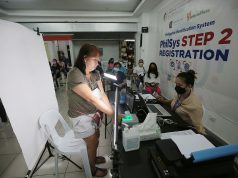THE Philippine Confectionery Biscuit and Snack Association (PCBSA) said it wants a system in place to continue to regulate sugar import volumes once imports are liberalized.
PCBSA President Kissinger Sy said it will propose to the government a mechanism that will consider the absorptive capacity of the market before allowing imports to prevent prices from being depressed, dampening the appetite for planting sugar.
He backed the retention of an accreditation system for importers “to ensure that we will only import what we need in our factories” and “not use (imports) as traders.”
“If we are allowed to import on our own, it will really create a big dent in the market. That’s why we need options, for local supply and imports,” Mr. Sy said in a briefing in Makati City.
“The scariest scenario is if everyone is allowed to import… prices will collapse and farmers will stop planting… Somehow the market will need to be regulated,” Mr. Sy added.
A November 2018 report by the United States Department of Agriculture’s Foreign Agricultural Service said that global production for marketing year 2018 -2019 is forecast to fall 9 million tons to 186 million, mainly due to an 8-million-ton drop in Brazil, the world’s top supplier, amid unfavorable weather and more sugarcane being diverted towards ethanol production.
Meanwhile, the sugar output of Thailand, the Philippines’ top source of imports, is forecast to decline 900,000 tons to 13.8 million on lower yields amid lower-than expected precipitation.
Mr. Sy added that the group is willing to pay a tariff as high as 35%, the maximum duty accorded by the ASEAN Trade and Investments Agreement to products under the sensitive or highly sensitive list.
He added that the PCBSA may be able to finalize its position paper to be submitted in February to various government agencies. — Janina C. Lim



